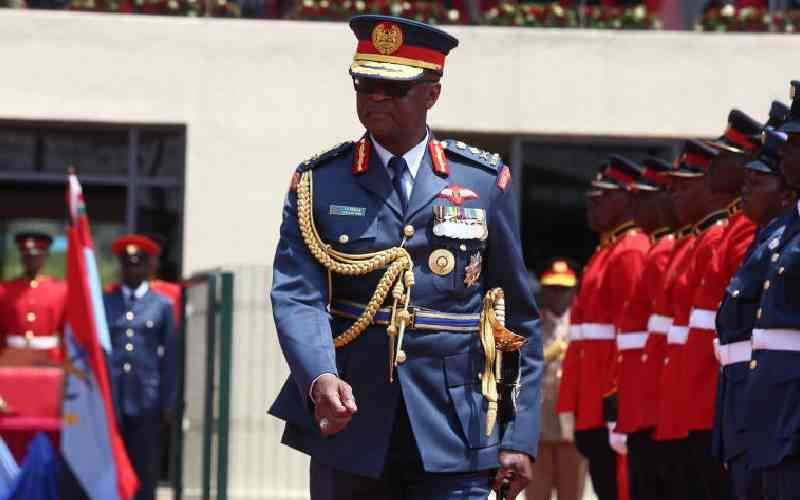A few weeks ago, Strathmore Business School (SBS) marked its 10th anniversary. We spoke with Strathmore University Deputy Vice Chancellor and Dean of SBS George Njenga, who said the past decade has seen the school attain critical milestones and set itself firmly on an upward trajectory.
Excerpts:
What do you consider the role of SBS in shaping Kenya?
First, let me say that I am like the vice president of the university, as well as the dean of SBS. We started SBS 10 years ago with one very clear idea: that a society develops and people improve their daily livelihoods when they do business well, participate in wealth generation and the private sector grows.
For a long time, our country has mainly been moved by the Government, but we want people to understand that to do business, and to do it well, is one of the most important things for our development. As a school, we also have great interest in teaching public policy practitioners.
So SBS’ curriculum emphasises entrepreneurial training?
Our curriculum is participant and practical-centered learning. You can also call it learning with case studies, or learning as you work, or programmed learning. Students study real cases from real businesses.
We also directly intervene in the development of business strategies. For instance, we are working with the Kenya National Chamber of Commerce and Industries and Coast Development Authority to run 463 projects that will impact about a million people. And soon, we are going into microfinance.
We also hammer you with a lot of theories. You must know what other people have discovered. We also bring international lecturers. So for every unit, you must have a minimum of two weeks training by an international lecturer — or at least a third of your programme has to have international content. In other words, you have to learn what the world is offering; we are in a global society.
Further, we bring practitioners to class, such as Tabitha Karanja (CEO of Keroche Breweries) or for Government policies, we can invite people like Attorney General Githu Muigai.
How different are we from the others? Well, we teach for 45 hours out of 45. No lecturer reduces the number of hours he or she has to teach per unit.
If you did research, you would be surprised to find that teachers in secondary schools or universities do not attend of a third of their classes. The amount of money I spend on training my teachers is amazing because I have to retrain and retrain and retrain until they get to the level where we can say these people are at a similar level to teachers in a US school, in a British school or in an Indian school. Last year, I don’t think we spent anything less than Sh21 million just on on-the-job training.
What are some of the key milestones you have achieved the last 10 years?
First is that we have become one of the most important global business schools. In Africa, we have about 45 partnerships. We have tried to look beyond profit; sustainability is our mantra.
We have inculcated good management in the healthcare and public sectors.
Stay informed. Subscribe to our newsletter
We are the only school that has a collaborative certification with the top business schools in the world, and we started embedding case-studies learning.
We started 10 years ago and there were no business schools in Kenya to start with; the art of building a business school is, therefore, one of our milestones.
Your plans for the next decade?
I call it the 10,000-businesses-and-growing concept. We want to have trained 10,000 public policy practitioners, 10,000 managers to build our healthcare system. I hope we will have trained at least 1,000 women directors of companies and boards in 10 years.
How seriously does SBS take training on business ethics in light of the increasing cases of corruption and unethical business behaviour in Kenya today?
For every MBA programme, we have 270 hours of training on ethics because we feel that corruption is treasonable.
The second thing we do is coaching because we believe that unethical behaviour also arises from ignorance and lack of proper upbringing. We have about 12 coaches, and we have almost 500 people in programmes for family development.
 The Standard Group Plc is a
multi-media organization with investments in media platforms spanning newspaper
print operations, television, radio broadcasting, digital and online services. The
Standard Group is recognized as a leading multi-media house in Kenya with a key
influence in matters of national and international interest.
The Standard Group Plc is a
multi-media organization with investments in media platforms spanning newspaper
print operations, television, radio broadcasting, digital and online services. The
Standard Group is recognized as a leading multi-media house in Kenya with a key
influence in matters of national and international interest.
 The Standard Group Plc is a
multi-media organization with investments in media platforms spanning newspaper
print operations, television, radio broadcasting, digital and online services. The
Standard Group is recognized as a leading multi-media house in Kenya with a key
influence in matters of national and international interest.
The Standard Group Plc is a
multi-media organization with investments in media platforms spanning newspaper
print operations, television, radio broadcasting, digital and online services. The
Standard Group is recognized as a leading multi-media house in Kenya with a key
influence in matters of national and international interest.





